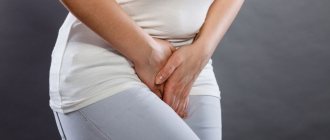Article navigation
- Symptoms and causes of alcohol intoxication
- Nausea and vomiting after alcohol: when is it time to see a doctor?
- What should you not do if you have alcohol poisoning?
- Why does nausea occur after drinking a small amount?
- Folk remedies and medicine in the fight against hangover nausea
Morning sickness after a wild party is a natural reaction of the body to alcohol poisoning. In healthy people who are not dependent on ethanol, nausea and vomiting may develop in the evening or at night. This is a natural reaction of the immune system and should not be alarming or alarming. As a rule, the nausea goes away by the evening of the next day, but medical attention will be required if the nausea progresses to vomiting and cannot be relieved.
Signs of nausea
Nausea and vomiting are protective functions of the body.
When experiencing a feeling of discomfort in the abdominal area, a person may notice accompanying symptoms:
- Dizziness;
- Weakness, sweating;
- Vomiting;
- Hypersalivation (increased salivation);
- Apathy, drowsiness;
- Irritability;
- Increased heart rate and breathing;
- Paleness of the skin;
- Increased body temperature;
- Feeling of pain in the stomach;
- Diarrhea is possible.
As a rule, after discomfort in the abdomen, vomiting begins. With the secreted masses, the remains of undigested food and harmful compounds are removed from the stomach (it is dangerous if blood clots, bile, and mucus are observed in the vomit). In this way, the body is cleansed and relief comes. If there is constant nausea and severe vomiting, this is a signal of pathological processes.
Remember! It is important to find out what the cause of nausea is and eliminate it. Treatment is prescribed and carried out only after the disease is diagnosed.
Why does water cause nausea?
Nausea is not a disease, but an accompanying symptom. If discomfort in the stomach and vomiting occur after a glass of water, this indicates a disruption in the functioning of the stomach. The cause may be the use of poor quality water.
Raw water contains trace elements that are beneficial for the body. Modern methods of water purification make it safe in terms of sanitary and chemical indicators. But worn water pipes can worsen the composition of the water. The increased content of chlorine, iron, organic substances and bacteria negatively affects health and leads to stomach upsets. Therefore, it is recommended to drink water:
- Cleaned using a filter at home;
- Bottled (meets safety requirements).
If the water is purified and fresh, but you still feel unwell after drinking the liquid, this indicates health problems.
What diseases cause nausea
Factors that provoke nausea after drinking water:
- Pregnancy. In the first trimester, nausea is a natural phenomenon in a woman’s body due to hormonal changes. Morning sickness is accompanied by vomiting. Acute reaction to smells, food, drinks. Stomach discomfort may appear from a glass of water.
- Problems with the central nervous system (CNS). Since nausea and vomiting are coordinated by the nervous system, a disorder of the central nervous system leads to similar physiological manifestations.
- Infectious diseases of the central nervous system - viral meningitis, encephalitis, acute myelitis.
- Increased intracranial pressure. It can appear both in childhood and in adults.
- Congenital (acquired) dysfunction of the vestibular apparatus. The patient feels unwell and dizzy with a sudden change in body position (getting out of bed or a chair, with sudden movements of the head), in transport. When the functioning of the vestibular apparatus is disrupted, motion sickness syndrome or “sea sickness” is observed.
- Inflammatory processes of the stomach organs. With serious diseases of the gastrointestinal tract, pain, abdominal cramps occur, and digestion slows down. Gastrointestinal diseases: acute or chronic cholecystitis (inflammation of the gallbladder), gastritis, pancreatitis (disease of the pancreas), ulcerative colitis. The patient complains of constant nausea on an empty stomach, vomiting with bile or blood, high body temperature, sharp pain, cramps in the abdomen, and a bitter taste in the mouth. The exacerbation of gastrointestinal diseases is influenced by nutrition (spicy, fatty foods, alcohol, flour products, cocoa-containing products, smoked foods, spicy foods). A feeling of malaise occurs after eating food or water.
- Food poisoning. Spoiled foods can cause digestive upset. Dangerous microorganisms and bacteria entering the stomach provoke severe nausea, vomiting, diarrhea, dizziness, and fever. In case of poisoning, the patient’s stomach must be rinsed (with a weak solution of potassium permanganate) and given activated charcoal. For rinsing, you can use a soda solution (add a teaspoon of baking soda to 1 liter of water). Do not eat for 3-4 hours to avoid repeated vomiting. Drink water in small amounts, often. If vomiting occurs after drinking water, seek medical help immediately.
- Side effects of medications, vitamins. Each medication has contraindications for use and side effects on the body. Nausea and vomiting may occur due to individual reactions of a person to the components that make up the medicine. In this situation, you need to replace the drug or stop taking it for a while. Before starting treatment with medications or taking vitamins, you must consult a doctor. Self-medication and incorrectly selected medications can lead to negative results.
Features of treatment
Unlike other types of intoxication, water poisoning does not involve gastric lavage. This is due to the fact that water is very quickly absorbed from the gastrointestinal tract, which means that rinsing is pointless. However, this is only relevant for those cases where water is clearly identified as a source of intoxication; there is no doubt that the person could have been poisoned by something else.
In severe conditions that threaten health and life, it is important to seek emergency medical help. If the patient is in satisfactory condition, the doctor will suggest outpatient treatment. Infectious diseases require specific treatment. The treatment regimen for poisoning with pesticides and other substances is developed individually.
Sorbents are used as the basis for treatment. They help bind and remove toxic substances. One of the effective and often prescribed drugs in such situations is Fitomucil Sorbent. This is a natural remedy that contains the shell of plantain seeds. The component absorbs water and toxins, turns into a gel and is eliminated naturally. The drug fights intoxication and its manifestations, normalizes stool and helps improve intestinal microflora.
It is important to pay attention to the prevention of dehydration. With repeated vomiting and acute diarrhea, the body loses a lot of fluid, so it is necessary to replenish it with saline solutions for rehydration. If you have overhydration—an excess amount of water in the body—you cannot give the patient anything to drink. The condition requires immediate hospitalization.
First aid for nausea
With severe ailments, the body becomes weak. Along with vomit, useful minerals, chemical components, nutrients and water are excreted. In order to quickly restore stomach function, ease the feeling of nausea, and reduce the urge to vomit, you must follow the following rules:
- Limit loads. Maintain bed rest, especially if dizzy. Reducing physical activity calms the body and helps relieve abdominal cramps. You need to relax and breathe deeply, so you can bring your heartbeat back to normal. You should lie on your side. If there is excessive uncontrolled vomiting, there is a danger of choking or inhaling the vomiting material. This can lead to a lung abscess.
- Ventilate the room well. Oxygen improves blood circulation, heart function, and central nervous system. Foreign odors lead to the resumption of vomiting. Clean air improves your well-being.
- After vomiting, you need to clear the oral cavity of secreted masses and rinse with water.
- To restore the water-salt balance in the body, rehydration drugs (Trigidron, Regidron) are used. It is necessary to drink when vomiting excessively to avoid dehydration.
- Wipe your face and neck with a towel dampened with cool water.
- Dietary foods are allowed to be eaten. You should eat food in small portions, but often. Refusal to eat will worsen your health condition. Neutral crackers, vegetables, fruits, dietary meat, non-carbonated mineral water, and herbal tea are suitable. Exclude fried foods, confectionery, spicy foods, seasonings, and sausages from the menu.
- To restore the stomach, take prebiotics (Linex Forte, Normobact, Bifiform, Laktofiltrum). They help replenish beneficial microorganisms in the intestines and normalize the functioning of the gastrointestinal tract.
- After consultation with a doctor, medications can be used to eliminate stomach pain, nausea, vomiting, and diarrhea. Cerucal is an effective antiemetic drug that helps with intestinal obstruction, heartburn, vomiting, and increased gas formation. Smecta is prescribed for the treatment of diarrhea and diseases of the gastrointestinal tract. No-spa is an antispasmodic drug prescribed for stomach pain.
Use any medications only after medical consultation!
Survey
When a patient complains of vomiting bile, a set of laboratory and instrumental methods is required to assess the condition of the gastrointestinal tract. An examination prescribed by a gastroenterologist is aimed at determining the pathological condition that caused the release of bile-colored vomit. The most valuable diagnostic methods are:
- Endoscopic examination
. FGDS is used to visualize the esophagus, stomach, and upper parts of the duodenum. The method effectively detects inflammatory changes in organs, ulcerative-destructive processes and dysfunction of muscle sphincters. Additionally, a biopsy of pathologically altered tissue areas is performed for histological analysis. - X-ray methods
. Taking X-rays of the gastrointestinal tract with oral contrast is aimed at studying the structure of all parts of the digestive tract, detecting nonspecific signs of inflammatory processes and peptic ulcers. For a detailed study of the hepatobiliary system, percutaneous or retrograde cholangiopancreatography is performed. - Duodenal sounding
. A study of the functional activity of the gallbladder with an assessment of the microscopic properties of bile is often decisive for making the correct diagnosis; it is carried out in all patients with vomiting with impurities of bile acids. If an infectious etiology of the disease is suspected, bacteriological culture is recommended. - Ultrasonography
. Survey ultrasound of the abdominal organs is used as a non-invasive express method that reveals signs of pathology in a specific part of the gastrointestinal tract. In case of biliary diseases, a targeted ultrasound of the gallbladder is performed to study its morphological features and detect possible stones in the lumen of the organ. - Stool analysis
. The appearance of bilious vomiting is often accompanied by various changes in the coprogram. By studying the macroscopic and microscopic properties of feces, the quality of food digestion is assessed, and signs of possible pathology of the biliary system are detected. If the patient has a general infectious syndrome, a bacterial culture of stool is performed.
Laboratory methods are used to clarify the diagnosis: an analysis is often prescribed to determine the content of free and bound bilirubin in the blood, determine the concentration of amylase and lipase, and search for specific antibodies. After excluding organic causes of the symptom, if the disorder is possibly functional, studies of the autonomic nervous system and the patient’s mental state can be carried out.
Ultrasound of the gallbladder
When you need to go to the hospital urgently
Short-term nausea and occasional vomiting do not pose a health hazard. It could just be a slight glitch in the digestive system. Signs that require medical attention:
- Prolonged nausea for no apparent reason;
- The presence of bile and blood clots in the vomit;
- High body temperature, chills, convulsions;
- All day long, an adult or child continues to vomit from water;
- Acute pain in the abdominal area;
- Severe and sharp headaches.
Seek medical help in a timely manner to find out the cause and promptly eliminate the disease. Do not ignore periodic illnesses and vomiting. Be healthy!










